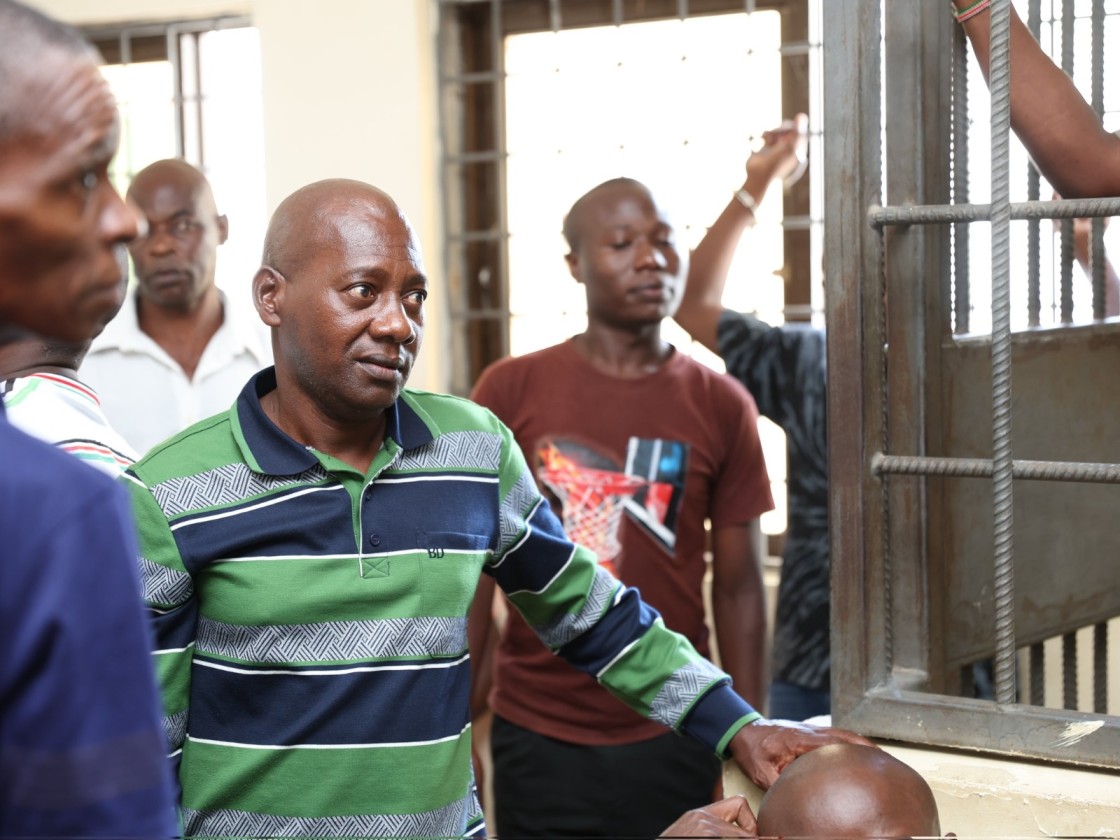Paul Mackenzie, the main suspect in the Shakahola massacre, has asked the court to stop prison officers from subjecting him to what he calls “special treatment,” saying it puts his life at risk.
Speaking in court, Mackenzie said he is being forced to receive special meals and medical care without his approval, which he believes could be used to harm him.
“I want to seek some orders from the court because they have been forcing special treatment on me. I have been surviving dangerously because they want to give me special treatment on food. I have seen they have found a leeway through that,” Mackenzie claimed on Monday.
The self-styled preacher, who is accused of leading a starvation cult in Shakahola, Kilifi County, told the court that he fears the medical attention he is receiving could be used to target him.
“I’m seeking an order that I should be allowed to queue with others in the block and eat where everyone is eating. I don’t want special treatment anymore. I want the court to give an order that I should not be taken to the hospital within or outside the prison without my authorisation. They might finish me on the way or give me a treatment that I don’t need,” he said.
Mackenzie and his co-accused are facing charges linked to the deaths of over 400 followers who are believed to have starved to death under his instructions, in what is considered one of the country’s deadliest cult tragedies.
They face multiple charges including child cruelty, torture, and denying children education.
During a hearing held on September 18 before Principal Magistrate Nelly Chepchirchir at the Tononoka Children’s Court, several witnesses gave emotional accounts of their experiences.
Charles Adundo, an elderly grandfather, recounted how he last saw two of his grandchildren after their father took them to school.
“That was the last time I saw them,” Adundo told the court.
Another witness, 70-year-old Felida Vugusa from Kapkerer, testified that her daughter Sarah Khahisha, son-in-law Mulama, and their five children disappeared on a Sunday while she was at church. She explained that Mulama had rejected formal education for the children and was attending a church she knew little about.
Government analyst Henry Kiptoo informed the court that DNA profiling of 333 family samples had led to the identification of 69 bodies from the Shakahola exhumations, including children and relatives of the accused.
Additional testimony came from Liwa Filbert, Director of the National Registration Bureau, who detailed how fingerprint analysis had helped uncover more than 35 suspects who allegedly gave police false names.
In another account, 26-year-old Khadija Wilson described how she found a malnourished boy who had escaped from Mackenzie’s area. She said the boy was too weak to attend school and stayed with her for four months before being placed under state protection.
